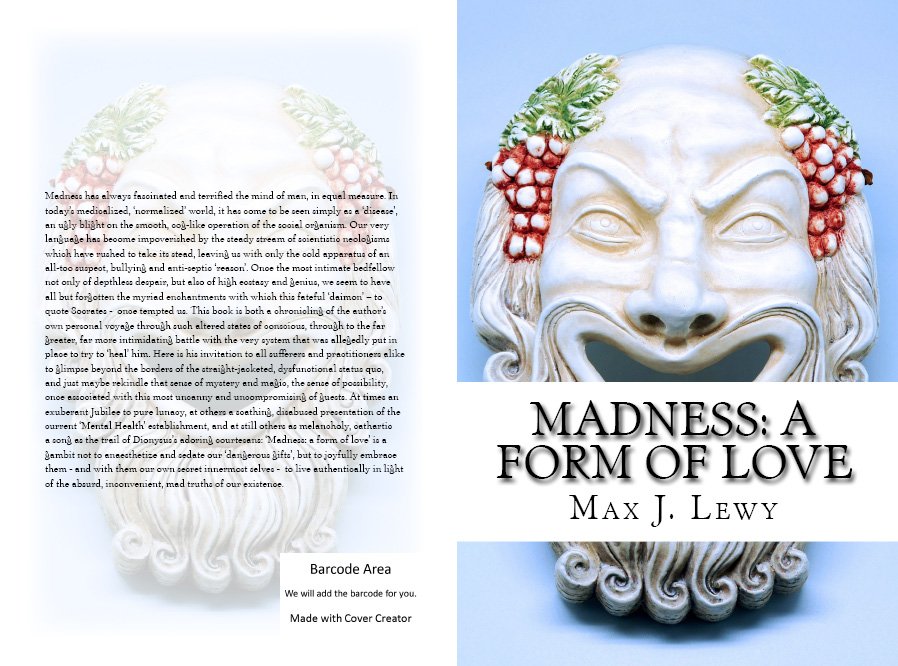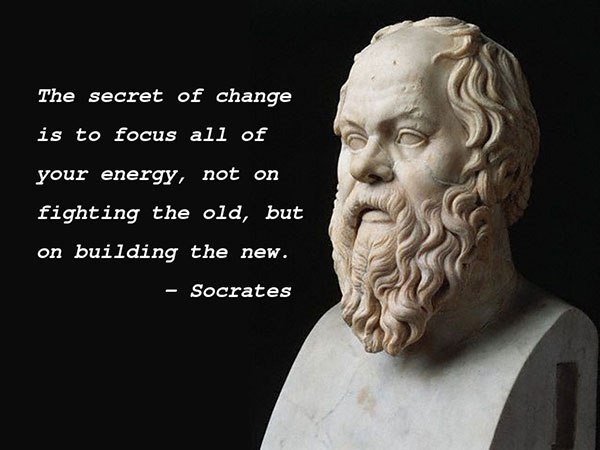Search the Community
Showing results for tags 'objective morality'.
-
*Below you see before you the lineaments of a NEW ROADMAP TO (objective) MORALITY. An improved alternative theory to UPB* One of the main aims of philosophy - if not THE aim -, as I understand it, is to correctly and adequately grasp one's own identity, inter-relationship and ultimately one's best policy/ 'God-given mission' in relation towards the concentrically outward stacked domains of self, family, friends and locale, country, planet, and Universe, with an emphasize on and understanding that it is the first and the penultimate categories of this series which are most definitive and most important. It is only by doing this that one comes into one's full humanity, since it is only by this way one realizes one's destiny as a valuable, meaningful and conscious agent of that great brotherhood. Though this, as I say, is the aim, very, very few fully attain it. Fortunately, there is a shorter and easier interim method. Though very few of us can consciously grasp the Whole in all its infinite complexity, we each have an instinctive emotional attitude towards it, together with all the other aspects of our existence. This emotional attitude, when properly harnessed and developed, is like a God-given light in otherwise total enveloping darkness. This God-given light is a natural compromise between the needs of the body and of the soul: of the need for mortal safety and action, on the one hand, and the knowledge of the Whole, that is necessary for really intelligent and purposeful action, on the other. However, as I say, this is only an interim method by which God permits us to keep our spirit alive in relative darkness. While a sense of purpose, i.e. true knowledge of how one can positively inter-relate within one or two of the concentric circles is a lot better than no purpose at all, for such knowledge to bring the greatest happiness it includes all of them. Otherwise, we will always have gnawing sense, often blossoming into unconscious yet total despair and the spiteful attitude that brings about, that we are working against History and our own true values. That is why petty-minded people are usually the most spiteful. The reason most people are so unhappy is because society does not teach them to follow that little blue flame in search of their destiny and conscious informed action for the sake of humanity, but expects them to merely 'fit in' with their little circle and run on habit and base impulses, like mere dumb animals. It goes extremely against current thinking to say this, but the truth is all human beings are deeply moral beings. Because we all share 99% of the same D.N.A., the 'selfish gene' dictates we all have an instinctive desire to benefit one another and act as custodians of the species as a whole. The reason people are so unhappy and 'selfish', so harmful to one another is only because they haven't been taught how to truly act otherwise - because we don't KNOW how to benefit the species as a whole; we aren't even shown the ropes on the way to this basic, deep-seated need we all have. Let us all say once again with Socrates (and really mean it this time) : "All evil, truly, comes from ignorance. " The main reason this seems so counter-intuitive is because nowadays we think of knowledge in terms of abstract propositions and specialist subjects that have very little to do with global politics or the state our own souls; but, in reality, all wisdom is of a practical nature, concerned not with narrow specialties, but with the Whole. The fact that it is really ignorance that drives people to do harmful things is also testified by the striking facts, firstly that they generally are none-too-bright when properly examined, and secondly, of their general striking unhappiness and pessimistic attitude towards life (it should also be noted that because everyone is so harmful anyway, since we are only harming the harmful it doesn't make much difference to the overall well-being of the species. It is only when human beings attain a rational perception of the Good, or some genuine kindness and at least the more intermediate awareness of it I mentioned above... or when we recognize their potential to do so, that they become really lovable to us.) . Philosophers, -or at least the best ones- on the other hand, (corroborating this theory) though they often make mistakes like everyone else, as a rule tend to be actually - in fumbling sort of way - usually quite saint-like (even Nietzsche, although he wouldn't have liked that designation... but that only shows how fastidious he was in being above honorific epithets that most people would sell their soul for, and do) , or at least considerably more morally fastidious and more gentle than average, including much more so that many other high-status members of society, such as priests and psychiatrists, both of whom are notorious not only for their amazing ignorance, but also for their sexual abuse and self-serving control tactics. It is important to note that philosophy, as I'm speaking of it, is not just about the latter, outer rims of the concentric circles I mentioned at the beginning, but also about knowledge of the Self, which I mentioned as one of the two most important stacked layers (in fact this is THE most important layer of all). In so far as a person has self-knowledge, some genuine knowledge of the soul and its needs, they are therefore akin to philosophers. That is why people who are quite ignorant of global politics can still be much happier and kinder than most other people, if they have some true insight about themselves and therefore also the needs of other individuals. The world does need a "Caesar with the soul of Christ" - someone who combines knowledge of grand politics and the human soul-; but, failing that, a Christ (or many Christs - real Christians - , as many as possible) will do nicely. Philosophers, in general, when they aren't making headway into the nature of the Whole itself, are traditionally concerned only with doing the one thing they know to bring real happiness and good-will - spreading philosophy (inquiry into the nature of the Whole, but particularly the Self, as above) to as many people who are capable of it and who will listen. Because that is the only thing that can save us. https://madnessaformoflove.blogspot.com/
-
- upb rival
- objective morality
-
(and 1 more)
Tagged with:
-
I've been recently having a long string of often exiting but rather frustrating debates about the objectivity of morality with a few friends of mine. One friend said that by defining morality as objective, i.e. defining it as universally preferable behaviors which, of course, are objective, it begs the question since objectivity is the claim being contested and it is included in the definition. I pointed out that by defining morality as subjective he is also begging the question if that is the standard but that didn't seem to go anywhere, and in fact it totally derailed the conversation (which is what I assume he meant to do). I guess this boils down to definitions, and since definitions are so crucial, how do you move forward when someone disagrees with a definition? It would be like trying to prove the earth is round, but the opposite party defines earth as a cardboard box that packages come in; how frustrating! How do I move forward in this argument since definitions cannot be proven as the meaning of words are subjective? For a bonus, what do you think the best way to approach objective morality is as nothing I have been trying seems to be landing emotionally with the people I debate with.




